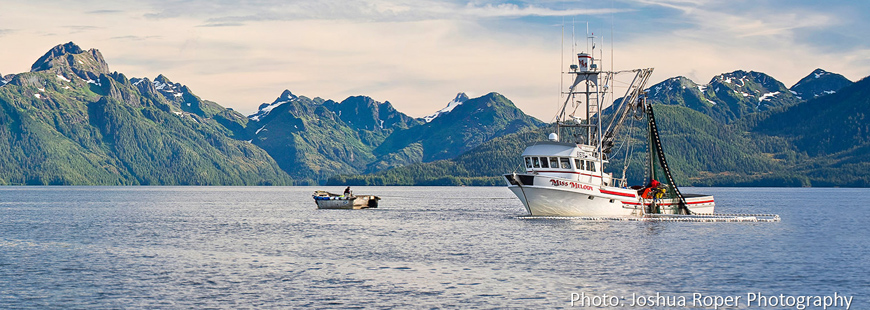Top photo via Linda Behnken
In a letter to the U.S. Department of Commerce and National Oceanic and Atmospheric Administration (NOAA) leadership, the Marine Fish Conservation Network outlined recommendations for promoting economic and food security through policies, endorsed by the Network’s members, supporting science-based fisheries management and thriving working waterfronts. The Network has sent similar letters to previous administrations as a way to introduce the Network and the work we do.
As Robert Vandermark, executive director of the Marine Fish Conservation Network, put it:
NOAA and the Department of Commerce have an opportunity to further America’s progress in fisheries management by continuing to rebuild our fishery resources for economic prosperity, recreational enjoyment, increased ocean health, and healthy food production and seafood security. The Network believes that the most timely and effective way to build economic resilience in commercial and recreational fishing sectors and our coastal communities depends on these priorities.
First, we encourage this administration to support our fishing communities as the intergenerational fishing cultures that form the economic and social fabric of the coastal United States. Second, we recommend improving science-based assessments, catch accounting, and data management, which are essential to achieving healthier oceans and more productive fisheries. Third, we support strengthening monitoring and transparency of bycatch in all fisheries to increase economic opportunities for fishermen. These policy priorities have direct, positive impacts on the business of fishing, whether commercial or recreational, as well as the seafood supply chain, and allow all sectors to better meet the challenges of the future.
Our recommendations, as Vandermark notes, point to the economic opportunities that come from healthy fisheries and thriving coastal communities. America’s fisheries support more than two million jobs and contribute well over $300 billion to the American economy. By making improvements based on our recommendations, our fisheries and fishing communities will continue contributing to our blue economy.
Working Waterfronts
The Network promotes working waterfronts, small businesses, local economies, and coastal communities, as the very backbone of America’s commercial fishing industry. As noted in our letter, we support restoring and maintaining waterfront infrastructure, and ensuring ocean access and sustained participation in U.S. fisheries for commercial businesses, recreation, tourism, and traditional uses. The Network prioritizes the needs of working waterfronts in the face of threats, like natural disasters and development, that have lasting impacts on coastal communities, local jobs, and regional economies. In addition, preserving funds that support community-based fishermen, sustainable fisheries, and working waterfronts is essential to safeguard the business interests of small fishing communities who will work the waters for generations to come.
Science-Based Catch Accounting and Data Management
The Network believes that improving science-based assessments, catch accounting, and data management are essential to achieving healthier oceans leading to more productive fisheries. We support fully funding comprehensive and regular stock assessments in all regions, including annual assessments for all stocks that are overfished or subject to overfishing. Gathering the best possible data in a timely, accurate, and transparent manner is achievable through sufficent monitoring of our fisheries, including electronic monitoring, recreational catch monitoring, and third party monitoring. A fair system for sharing funding costs of at-sea monitoring needs to be developed and implemented.
Bycatch
Accountability and reporting guidelines for bycatch are essential. Bycatch varies from fishery to fishery, and many fisheries suffer from unobserved bycatch rates and poor bycatch data, leading to significant uncertainty in stock assessments. Bycatch reductions should promote ecosystem health, protect historic directed fisheries and provide socioeconomic opportunity for fishery dependent communities. We must incentivize the use of gear that reduces bycatch to support fishermen who convert to practices to avoid bycatch.
The U.S. has made great strides toward more sustainable management of its ocean fisheries, but the work is far from done. In the face of climate change and other growing threats, we need to take steps now to ensure working waterfronts and ocean fisheries can support fishing and seafood jobs, businesses, and American families for generations to come.


